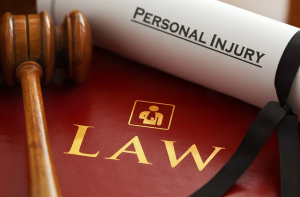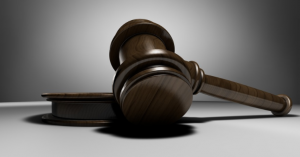Car accidents can leave you devastated. Car accidents can cause serious financial, emotional, and physical damage. While some accidents are due to uncontrollable circumstances, most car accidents are directly related to bad driving. To get you prepared before filing a car accident lawsuit or making any lasting decisions, please read down below.
What Is Personal Injury Law?
 Car accidents are a type of personal injury incident where you or someone you love experienced harm at another person or entity’s hands. Personal injury law seeks compensation for the damages you endured due to the injurious actions of another.
Car accidents are a type of personal injury incident where you or someone you love experienced harm at another person or entity’s hands. Personal injury law seeks compensation for the damages you endured due to the injurious actions of another.
In any car accident, you file a claim with your insurance company to cover the costs associated with the accident. If you have an automobile insurance policy, you have likely paid an agency for years to cover your risks. However, the insurance company you’d sue is not your own but the at-fault driver’s agency. If their payout is nowhere near what you feel you deserve or need to cover the costs of the accident, you should pursue legal action.
What Is the Role of a Legal Professional?
 An attorney is the only qualified person who can give you a detailed assessment of the damages you have suffered. Even if you believe you will not be compensated, an attorney can confirm this suspicion. A car accident attorney is a good choice.
An attorney is the only qualified person who can give you a detailed assessment of the damages you have suffered. Even if you believe you will not be compensated, an attorney can confirm this suspicion. A car accident attorney is a good choice.
An experienced attorney will be able to tell you if your case warrants an actual lawsuit. A car accident lawsuit can be a complicated matter. Like any other legal battle in court, it can be expensive, time-consuming, and unclear. Because of these obstacles, many car accident cases against insurance agencies are settled out of court. To avoid lengthy legal battles, your attorney will negotiate the best amount with the insurance company. If you feel that the amount you receive in these discussions is insufficient, you can file a lawsuit against the insurance agency.
What Evidence Do You Need to Present?
The foundation of any lawsuit is solid evidence. Your ability to find the right information and documents is critical to the success of your court case. For your case to be successful, you will need crucial evidence such as insurance claims and medical bills.
Documentation of Insurance. The success of your case depends on the accuracy and completeness of your insurance documents. If you don’t have the correct information about your claims and the opposing party’s policies, it will be difficult to make an accurate representation. These documents are important because they can provide you with concrete figures that demonstrate your financial hardship. Insurance companies cannot ignore a detailed description of your damages about the amount of their offer. It is difficult for them to do so. Be sure to get all of the insurance information from both you and the at-fault driver. This will help you create an accurate accident report.
Medical Records. The evidence in a lawsuit must be directly related to your claim for damages. Therefore, medical records must be related to your injuries. You will not be able to submit unrelated medical bills that have been piling up for months. This is where medical records come into play. The medical bill only shows the treatments you received and their total cost. The medical record details specific procedures, doctor’s notes, treatment plans, and costs for each injury. The treatment plan is critical because it contains information about medications and rehabilitation. It also reflects the damage to your professional and personal life. While financial losses due to expenses and bills can be considered, loss of income must also be taken into account.
Car accidents can leave people physically and mentally unable to work and move around for weeks or even months. These costs add up and cause tremendous stress. Car accident claims often involve financial and emotional impacts. You may also be entitled to additional compensation. If you visited a psychologist or therapist due to your car accident, you could argue for monies to cover these appointments.



